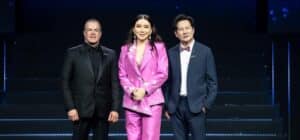A GROUP of prominent economists has called on incoming President Rodrigo R. Duterte to scrap the present policy of allowing the National Food Authority (NFA) to monopolize the importation of rice, urging instead the liberalization of the process as a means of making food more affordable to the poor.
The Foundation for Economic Freedom (FEF), an organization advocating market-friendly reforms, good governance, and economic and political liberty, called on the incoming administration to drop such “discredited policy” of allowing the NFA to monopolize rice importation and subjecting rice imports to quantitative restrictions.
At the same time, FEF said giving out import permits to favored importers had only resulted in “rampant corruption” in the Department of Agriculture, high rice prices for consumers, “unabated smuggling” due to the price discrepancy between local rice and landed imported rice, and “palpable inability” of the government to quickly respond to supply and demand factors for rice.
“If change was coming to the past and present policies, the incoming Duterte administration should remove the present NFA monopoly on rice importation, liberalize rice importation, and instead impose tariffs on rice imports to generate revenue that can be channeled directly to rice farmers,” FEF said.
The economists argued liberalizing rice importation would enhance food security, rather than diminish it.
FEF noted Malaysia was allowing up to 30 percent of its needs met by rice imports. Singapore, which has no agricultural sector and relies on international trade, was rated as the second most food-secure nation in the world after the United States by the Economist Intelligence Unit, it added.
“By liberalizing rice trade, the incoming Duterte administration could prevent the huge losses of the NFA and make rice affordable to the masses. In fact, most poor rice farmers were net consumers of rice, as the Kidapawan, North Cotabato farmers have shown in their recent protest,” FEF said.
“Liberalizing rice importation would definitely benefit the poor. Our country cannot bear rice to become more unaffordable especially at a time of supply uncertainty due to severe drought conditions.”
FEF also noted changing the present rice policy would not only unburden taxpayers with billions of annual subsidies to the NFA, but prevent any further increase in the national government’s guaranteed debt, presently more than P150 billion.
Citing World Bank estimates, FEF said for every P5 of spending for NFA, P4 represented “wasted leakages” that provided no public benefit. “Such funds may be better used to support agriculture infrastructure, research and extension services, and to develop other neglected but promising crops like coconut, coffee, and cocoa, as well as aquaculture in the Philippines.”
FEF is chaired by former Finance Secretary Roberto de Ocampo. Its vice chair is Romeo Bernardo, while president is Calixto Chikiamco. Its senior advisers are former Prime Minister/Finance Minister Cesar Virata and UP Economics professor emeritus and former Economic Planning Minister Gerardo Sicat. Board members include Anthony Abad, Art Corpuz, Eduardo Gana, Felipe Medalla, Vaughn Montes, Simon Paterno, Perry Pe and Gloria Tan-Climaco.


